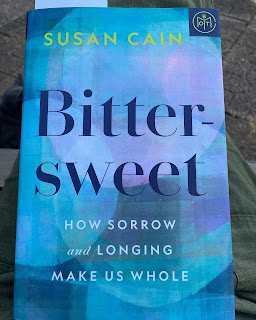Fourteen-year-olds have the attention span of a fruit fly, particularly in the last 6 weeks of the school year. For this reason, it was not especially surprising when I asked them to diagram a sentence and one girl started squealing.
“Oh my God, you guys, my order was just delivered from XXX!”
Without thinking, I said the same thing I say to my sister when she says that sentence: “Dang, you know that’s coming from a sweatshop, right?”
“No one cares,” said another girl.
I was torn. I shouldn't have said anything. But now that I had, and now that this other student had responded, I was in a tough spot.
This year I taught my most challenging group in the city, where I volunteer: about a dozen souls who had just been rescued from a human trafficking ring and didn’t speak a word of English.
To be honest, I don’t think the organization I volunteer with even realized what these people had been through -- how could they, when communication was nearly impossible? By the time I taught the group, some of them were under federal protection. I don't even know their names.
Sweatshops are now personal for me. Now that I’ve looked in the eyeballs of people that have been part of a human trafficking ring and lain my hands on theirs while I teach them the English QWERTY system, sweatshops are not just theoretical.
As everyone pulled up the sentence we were supposed to be diagramming, I finally said, “A sweatshop is a place where people — even children — are forced to work, like, 18 hours a day.”
“Yep. Children, got it. 18 hours. No one cares. Like, literally, no one cares, so stop talking.”
We talk about a lot of things in the 90 seconds it takes students to boot up their shitty Chromebooks and find their vocabulary documents every morning. We’ve talked about everything from lawnmower brands to soccer games to curriculum design to when Mike is going to bring back the book he borrowed from me 7 months ago.
Still, I was angry at myself for commenting on the ethicality of fashion choices. It’s not my job to teach students about sweatshops.
Except that... I've seen the fallout where most people have not.
The third ethical pillar of yoga is asteya: non-stealing. It is the responsibility to give back just as much as one takes - from the earth, from each other, from oneself.
This is hard for me. The OCD part of my brain that ruminates in a continuous loop about literally ANYTHING that I am anxious about does not like the idea of balancing what I give and take.
*should I keep a ledger in my head?
*must I give and take equally from each person or place? Or is it more like a general “I can give this, so I will”?
*what will happen if I take more than I give?
*I’m bad at recycling cans of beans but good at recycling paper towel rolls. Where does that put me?
*my neighbors mowed my lawn for 5 years (over my protestations) because they’d gotten used to doing it for the single mom who lived here before me. Now they can’t. Does that mean I have to mow their lawn for 5 years? I just bought my first lawnmower and I could only afford a tiny one whose battery charge is highly questionable. Also my neighbors have grown kids to help them. And I handled the grocery-buying and trash days. I really hate mowing lawns, and I suck at it, but it seems like asteya implies I’m a real asshole if I don’t mow their lawn. You know. After my two jobs and yoga training.
That brings us to the real crux of the matter.
I am deeply depressed. It got significantly worse after I did everything right -- knew the right people, had the right experience, got the right certifications -- and didn't even pass the initial screening process at a district where the principal WANTED to hire me.
I've spent the last year thinking, "This is my last year here. I can do anything for one more year."
So when that fell through, when I wasn't even allowed to interview, it's like something inside me broke. I lost all motivation to try anymore.
The teacher's union -- that I pay $700 a year -- sent constant emails and updates about negotiations for next year's salary. My contract just arrived in the mail yesterday. It was for an additional $250. After the withdrawal of pension and taxes, that amounts to $7 per paycheck.
So essentially, my union bargained for me to get an extra chicken sandwich.
I always thought my yoga teachers were being hippy-dippy when they began class every so often with the words, “We’re going to be doing a lot of hip-openers tonight. For those of you who don’t know, the hips are where our emotions are held, so it’s not unusual for people to cry or get really angry after practicing. Just roll with it.”
I honestly never paid attention to this until one night I was out with friends, ran to the bathroom, and started BAWLING for no apparent reason. I felt like a complete LUNATIC. And how do you even explain that to people?
“Don’t mind me, my hips are just open.”
(Also…is it worse the MORE open your hips naturally are?)
So imagine that mystifying bathroom-crying but amplified by 12 because that’s how many hours of yoga we’re putting in per weekend of YTT.
“At least once per 4-hour session, someone starts crying!” I gesticulated wildly to Lucy.
“Be honest,” Lucy said, whilst rocking her baby. “It’s you every time, isn’t it?”
GAWD, SHE IS ANNOYING.
But also, yes.
I find myself now avoiding the studio and dreading training because I feel like one giant, exposed nerve. And that makes me even more sad.
I don’t really know what the answer to this is.
Priya, my dear colleague and friend from Bangalore, India, says I must always be thankful that things are not worse. And I am thankful: I am not working 18 hours a day in a sweatshop. I live in a country where I speak the dominant language and people understand me. I am not under federal protection.
But also, I am sad. I don’t know if depression is stealing my joy or if training is. Or if sheer exhaustion is, since every day I’m not at training or at school, I’m at Job #2. Literally every day.
Asteya is non-stealing. I don’t want to steal from my own future by staying mired in this inability to DO anything other than tread water.
But also…I’m too tired to do anything else.























